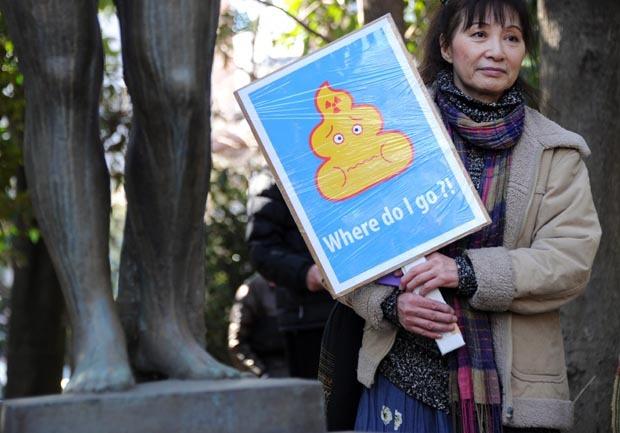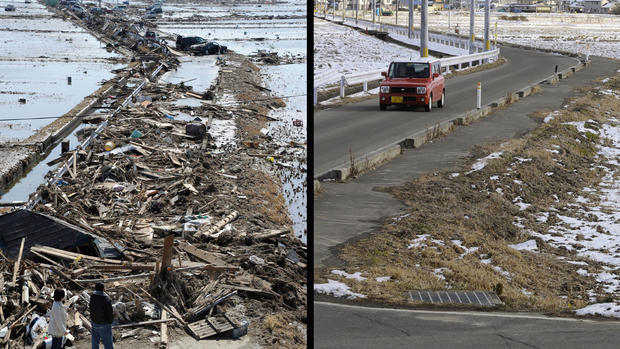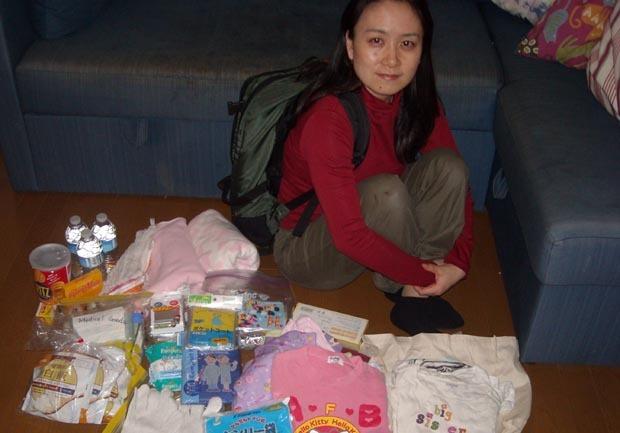Tokyo on edge one year after massive earthquake
(CBS News) A year after a colossal earthquake and tsunami devastated northeastern Japan, residents there are struggling to rebuild their lives. Wary locals near the damaged Fukushima nuclear plant don't trust government health officials. The radiation cleanup has been called trial and error.
But the angst, skepticism and panic is also palpable 150 miles south in the capital of Tokyo. Residents there remain fearful of another powerful earthquake and the nation's inability to respond to the next "big one." Last year's quake rattled Tokyo's nerves and paralyzed its operations. The city's rails were shut down, its mobile phones disabled and the government considered evacuating the city as the nuclear crisis escalated.
Complete coverage: Disaster in Japan
Tokyo remains particularly vulnerable because of its dense population. Roughly 13 million people live in the city and over 32 million make their homes in the vicinity, making it the most populated metropolitan area in the world. In January, the capital city received an ominous forecast. Tokyo University reported that because of the seismic activity spurred by last year's earthquake, there is a 70 percent chance of a large-magnitude quake in Tokyo within four years. Researchers said that a magnitude-7.3 quake under Tokyo Bay (much weaker than last year's 9.0 temblor) could kill up to 11,000 people and either topple or disable 850,000 buildings.
"That research was shocking for me and a lot of people," said Yoko Koshikawa, a mother of two who lives in Yokohama, outside Tokyo. "We are trying to remember the tragedy and learn as much as we can from it to be prepared for whatever might happen next."
Koshikawa, who I met while working in Japan in the 90s, is one of several residents in the Tokyo area who shared their thoughts with CBSNews.com. Most expressed apprehension about another major earthquake and wariness of the government's ability to manage such a disaster. They also voiced concern about the threat of lingering radiation contamination and the overall nuclear fallout. Below are some of their reflections one year after the 2011 earthquake and tsunami:
"All I hear from TV is how bad the government did with everything, and it would have been so much better if the government did this or that. There is not one day I don't hear or watch any news or documentary about Tohoku. ....I am really scared of earthquakes, I still panic every time I feel it. Sometimes I wish I could get away from Japan but I have my parents and my grandma here and I cannot leave them. And I cannot stop, so I try to be prepared as much as I can, and I keep going. I thank God for what I have today, and I try to live and enjoy the moment because you never know what happens tomorrow, or next second." -- Yoko Koshikawa, 38, preschool teacher assistant in Yokohama
"There is a huge gap between the government and people. Japan is going to sink if things stay as they are." -- Hideyuki Iwata, 38, doctor in Tokyo
"The earthquake totally changed my view on our government and food-related companies. I am very disappointed by them as they place more importance on the economy rather than people's health. I am worried about children's future health as we have no choice but continue to take the radiation-contaminated food spreading throughout Japan due to the government's lax regulations... The Tokyo Electric Power Company is presumed to be dumping radiation-contaminated water into the ocean around the Fukushima No.1 plant, but it is no longer on the news...The government pretends that we have moved on from the dangerous stage, but it is not really the case. I just hope the continuing problems will be solved soon, before the predicted major earthquakes hit the Metropolitan area. " -- Yoshiko Uemura, 41, housewife and mother of three in Yokohama
"For the first six months, people especially who live in Tokyo or the eastern part of Japan were quite nervous about the continuous earthquakes and especially about the nuclear plant in Fukushima. The shortage of the electric power affected a lot of the nation's productivity... The earthquake had changed our way of work. Many people gradually started to work for shorter hours and spend longer hours with their family.. [but] except for people in the Tohoku area, we are slowly forgetting the fears that we felt one year ago." -- Takanori Hamaoka, 36, pharmaceutical sales, Tokyo
"I believe we have demonstrated last year after the earthquake that we can organize and cooperate together for fast recovery on our own, not by government or public organization's initiative... Nuclear power plants in Japan, including those in Fukushima, were considered to have state-of-the-art technologies, but had betrayed the trust of the world and the Japanese. I believe Japan has the responsibility ... to share what we learned from the serious nuclear accident last year in order to ensure nuclear safety in the world." -- Nagisa Koshikawa, 65, business owner, Yokohama


